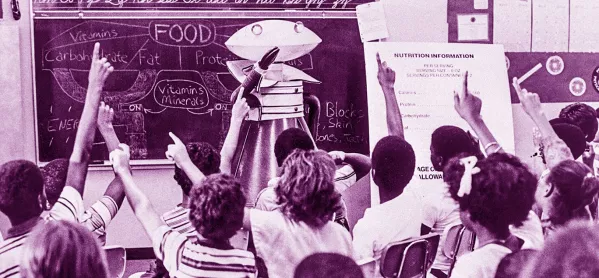Artificial intelligence could take away a large chunk of teachers’ workload - but schools should be wary of “commercial hype” around certain products and services, according to an expert at Scotland’s national education and curricular development body.
Ollie Bray, a strategic director at Education Scotland, said: “I definitely think that there are ways that we could use AI to cut down on bureaucracy.”
However, Mr Bray added: “I also worry that you might end up with some quite strange situations.”
He suggested that rather than seeing AI as a solution to bureaucracy, the education system needs to get to the bottom of why bureaucracy exists in the first place.
In a new episode of Education Scotland’s Learning Conversations podcast, in which he is interviewed by the body’s interim chief executive, Gillian Hamilton, Mr Bray gave an example of a situation in which a drive to reduce bureaucracy using AI could be counterproductive.
He said: “So, a professional uses an AI to write a report, and they send that report to another professional.
“That professional can’t be bothered to read the report, so they get AI to summarise that report and it comes back [to the first professional], and then they reply using the AI to the email, saying what they think of the report.
“So very, very quickly, you kind of end up in this sort of slightly negative spiral, where actually people are really detached from the main source of learning.”
He added: “While I think that AI can reduce bureaucracy, I think the bigger question is, why is the bureaucracy there in the first place? And that’s the thing we need to get under the bonnet of.”
Mr Bray formerly had a role as Scotland’s national adviser for emerging technologies in learning and has also been a secondary headteacher in the country, as well as the LEGO Foundation’s director of global programmes.
He said that there were already “products on the market talking about AI-driven reports”, but “part of this is commercial hype probably, [to] be really honest about this”.
Mr Bray also said that the recent Hayward report on qualifications and assessment had a “really interesting and well-balanced section on AI” that explored international evidence and the differing reactions of education bodies, with some banning the use of AI for coursework and others - such as the International Baccalaureate - embracing AI.
He points out that while much of the debate around AI and education is focusing on the potential for cheating, another crucial issue is whether educators primarily use AI to speed up existing tasks or to drive innovation.
“I think the biggest risk about AI, that we don’t often think about, is what is the education that we really want young people to experience,” Mr Bray said.
He gave the example of “many, many educational AI apps where developers use AI to recreate traditional methods of education, but arguably in a more efficient way - rather than...thinking about how AI can be used to give children more agency, develop creativity, help them work across projects with other people”.




